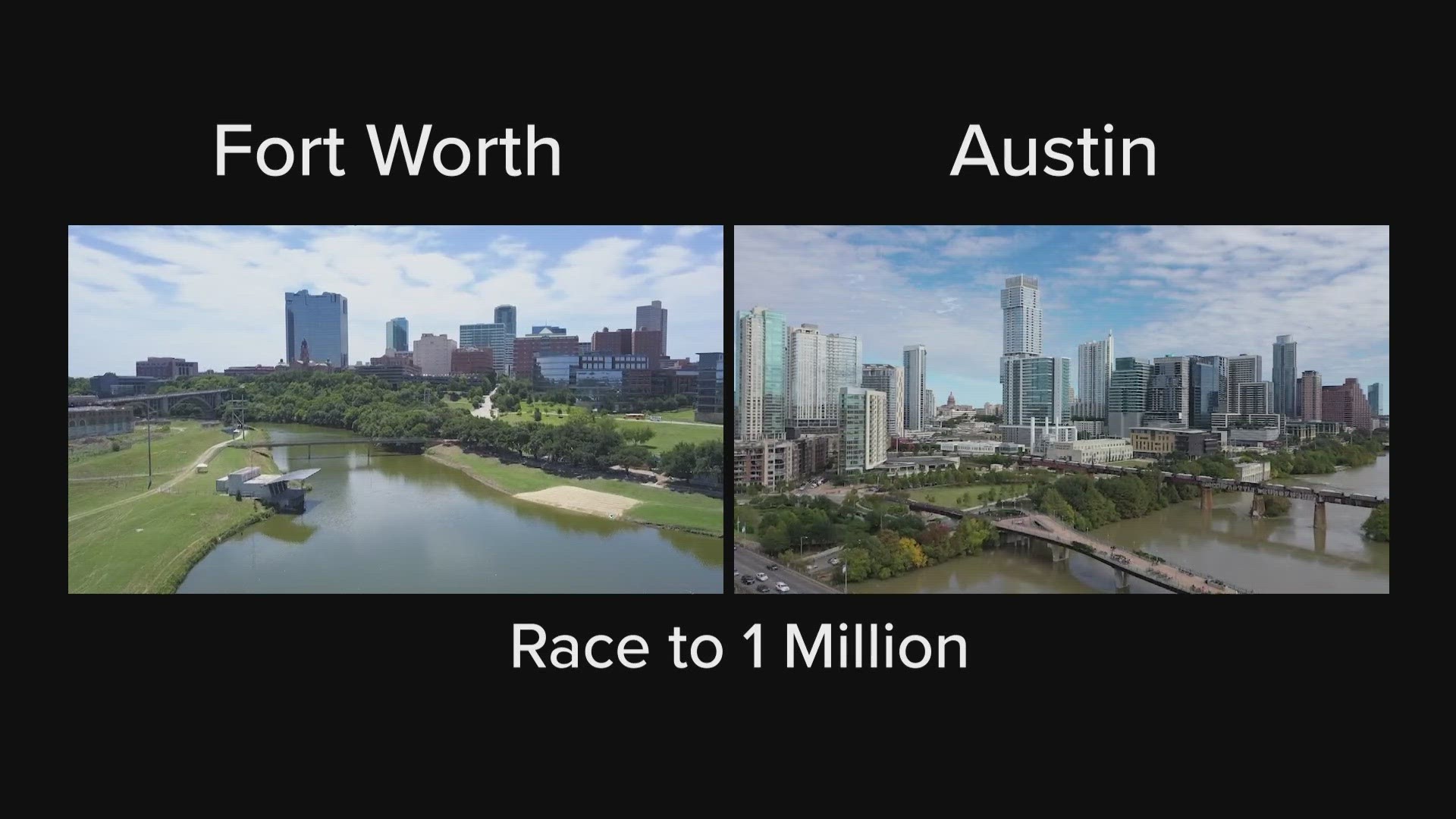FORT WORTH, Texas — Fort Worth added more residents than any other big city in the nation, according to newly-released census data tracking population growth from July 2021 to July 2022.
Demographers estimate the city's population is now close to 957,000. About 19,000 people moved to Fort Worth between 2021 and 2022, they said.
If the growth continues at this rate, Fort Worth's population will easily exceed one million people before the end of the decade.
"Symbolism does matter, in that capacity," said Kyle Walker, who directs the Center for Urban Studies at TCU.
"Being able to say, 'We are a city of a million people' matters from a marketing standpoint and from a branding standpoint for a city that wants to grow," he added.
Fort Worth has benefitted from growth surrounding it, Walker said. Thousands of people have moved to the Dallas-Fort Worth metroplex, as Americans flock to Texas.
Fort Worth is especially attractive because it's relatively cheap to live there, Walker said.
The city also has room to grow.
"Fort Worth, as a city, borders countryside in many directions," Walker said. "It has the opportunity to annex land. It has the opportunity to build new, single-family housing on the outskirts."
Surrounded by booming suburbs, Austin does not enjoy the same advantage. It's already about 30 square miles smaller than Fort Worth.
Still, Texas's capital is growing. It's now the nation's tenth-largest city, with about 974,000 residents.
Austin remains millennials' darling. In many ways, it's set the bar for booming cities in other states.
But Fort Worth has grown nearly four times faster than Austin since 2020. If both cities' current pace holds, "Funkytown" will reach one million residents first.
In stark contrast to Austin, Fort Worth may have benefitted from its word-of-mouth reputation.
"Flying under the radar a little bit does contribute to keeping housing costs comparatively low," Walker said. "That is one factor that enables population growth, to a degree."
Walker added that Austin might've grown too fast for its infrastructure.
"So many people are coming and all of a sudden the cost of living goes up, traffic gets worse, and some of the benefits of a place end up kind of slipping away," he said.
Fort Worth could face growing pains of its own, particularly related to transportation. Urban sprawl often displaces workers, forcing long commutes in absence of strong public transit options.
A plethora of other factors influence growth and regression, including culture.
Some DFW residents contend Fort Worth will always attract newcomers, as long as it maintains its cowboy identity.
"You have Hollywood people who come to Texas and go to Austin," said Heather White, a Dallas resident visiting the Fort Worth Stockyards Thursday. "They don't give Fort Worth a try. If they did, they'd realize that's really what they're after."

